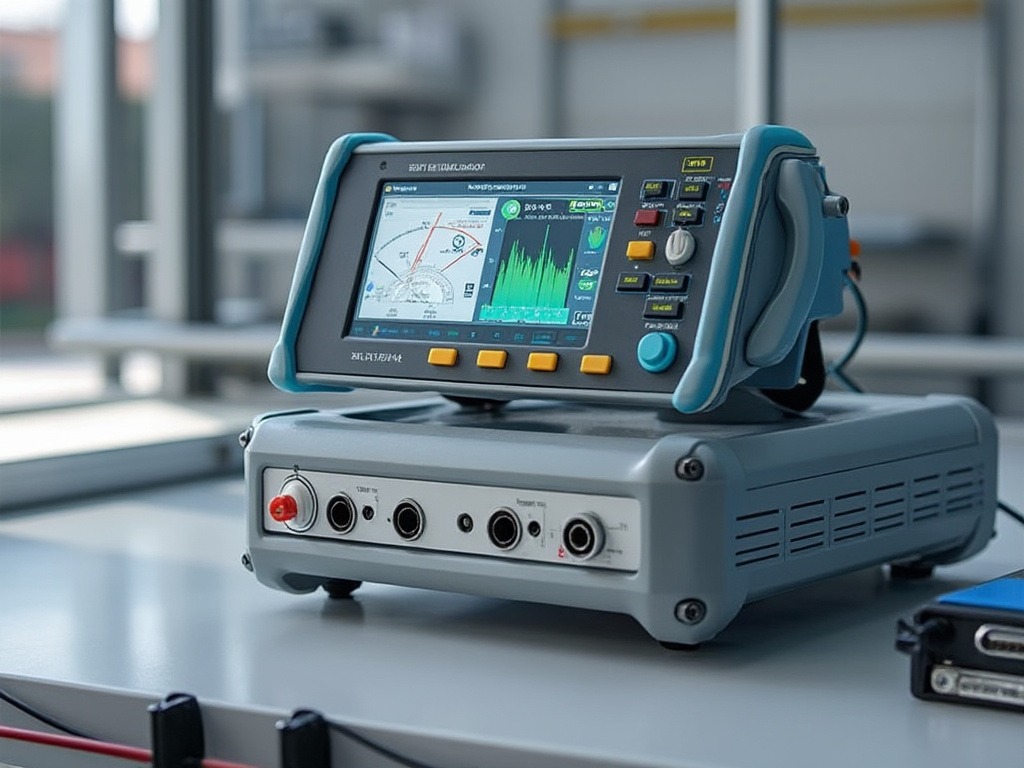Battery technologies are one of the most critical components for meeting today's energy needs. The high performance and durability of batteries used in many areas from electric vehicles to portable devices are guaranteed by tests conducted in R&D processes. However, these testing processes are quite time-consuming and costly. At this point, battery simulators come into play, and especially domestic battery simulators play an important role in these processes with their cost advantages and short-term availability.
1. Importance and Usage Areas of Battery Simulators
Battery simulators are devices that mimic the behavior of a real battery. These simulators are used to test the performance, reliability, and durability of batteries. The use of battery simulators is particularly common in the following areas:
- Electric vehicles: The batteries of electric vehicles are used in performance tests to analyze how the batteries react under different operating conditions.
- Telecommunication equipment: Simulators provide great convenience in testing batteries used in portable devices and communication infrastructure.
- Industrial applications: Simulation of batteries that meet the energy needs of heavy industry and industrial devices is performed.
In these areas, battery simulators allow users to achieve long-term savings by minimizing wear and cost problems that would be encountered if real batteries were used.
2. Difficulties Encountered in Testing Processes
One of the biggest problems in battery testing processes is that the tests are time-consuming and costly. In tests conducted with real batteries, the wear period of the batteries occurs quite quickly, which prolongs the testing process and increases the cost. Especially when durability tests need to be conducted under different conditions, it may be necessary to use a separate battery for each condition or to test the batteries repeatedly. This both shortens the life of the batteries and increases the budget spent in the R&D process.
3. Advantages of Domestic Battery Simulators
Domestic battery simulators have many advantages over imported products in terms of both cost and delivery time:
- Lower cost: Domestic simulators can be supplied with a lower budget for companies, considering the taxation and logistics costs of imported products.
- Fast supply: Battery simulators produced in Turkey accelerate R&D processes and reduce the waiting time of test processes thanks to their fast supply.
- Technical support and customization options: It is faster to get technical support from simulators provided by domestic manufacturers. In addition, companies can make special requests to make the products more suitable for their own testing processes.
4. Methods to Save Testing Time
One of the biggest advantages offered by battery simulators is to perform testing processes in a shorter time and at a lower cost by using simulators instead of real batteries. Here are the details of these advantages:
- Faster testing process: Endurance tests that shorten the lifespan of real batteries can be performed faster with simulators. This saves time.
- Reusability: Simulators can be used repeatedly in different test scenarios, eliminating the cost of battery replacement.
- Reducing risks: Performing tests on simulators that are difficult or risky to perform on real batteries increases safety and speeds up the testing process.
In particular, domestic battery simulators provide great savings in long-term R&D processes as they offer an affordable solution to the user.
5. Examples of Domestic Battery Simulators and Areas of Use
Battery simulators produced domestically in Turkey offer customized solutions according to the needs of different sectors. Here are some sample battery simulators developed in Turkey and their areas of use:
- Simulators for electric vehicles: The electric vehicle sector in Turkey is growing rapidly and domestic battery simulators support the R&D processes in this sector.
- Battery simulators for portable devices and medical devices: Simulators used to measure the durability of batteries used in portable devices provide great convenience, especially in long testing processes.
- Simulators for energy storage systems: The performance of energy storage solutions is tested using domestic simulators in the testing processes of batteries used in renewable energy sources such as solar and wind energy.
These domestically produced simulators not only meet the needs of the sector, but also contribute to domestic production and support the country's economy.
6. The Future of Domestic Battery Simulators and Industry Impact
The contributions of domestic battery simulators to battery testing processes increase the interest in domestic production in the sector. With the development of these simulators, R&D processes can be carried out faster, less costly and more safely. In addition, the introduction of technologies developed in Turkey to the world market also has the potential to increase Turkey's technology exports.
Domestic battery simulators have become an indispensable part of R&D processes. These simulators, which are used instead of real batteries, provide great advantages to companies by speeding up testing processes and reducing costs. The low cost, fast supply, technical support and customization opportunities offered by domestically produced simulators increase the effectiveness of testing processes. Considering the technological developments in Turkey in particular, it is anticipated that domestic battery simulators will be used in many more areas in the future and will guide battery testing processes.

